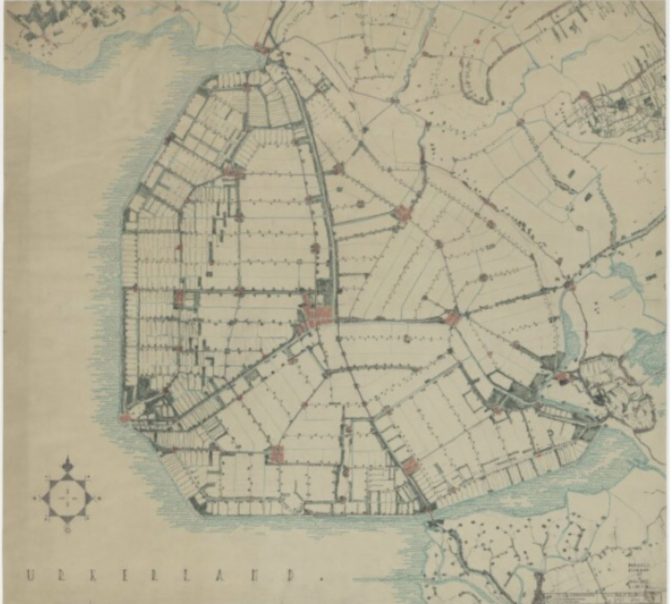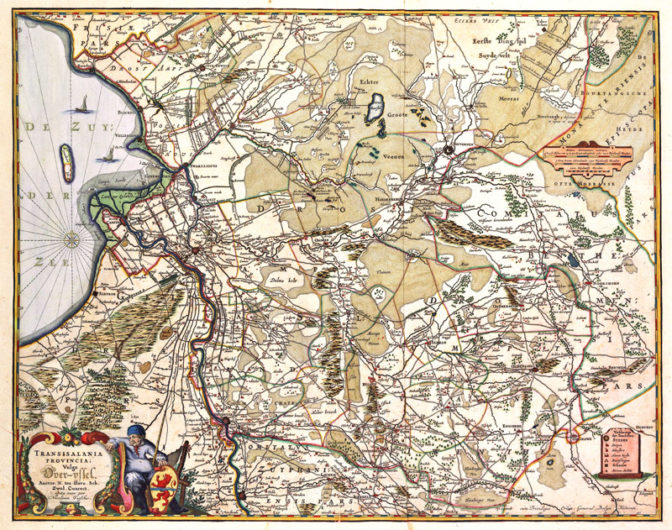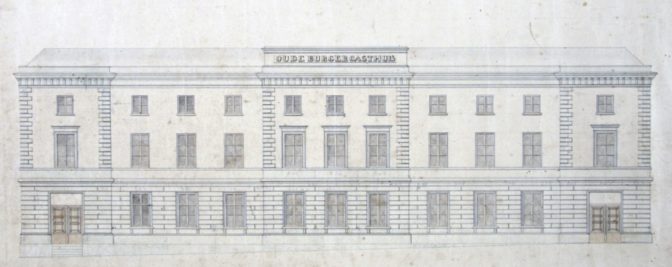Here is an overview of the new sources, projects, and news about archives that were announced last month.
Online sources
- Over 50,000 people from the eastern part of Gelderland have been added to the index of notarial records of the Erfgoedcentrum Achterhoek en Liemers. This includes records from places with high numbers of emigration, such as Aalten, Lichtenvoorde, Neede, and Winterswijk.
- Abstracts of the charters and records of the St. Pieter chapter in Utrecht (1040-1528) are now available via the Utrechts Archief website
- Over 300,000 pages from the records of the Zeeuws Genootschap, a society for the history of Zeeland, were published on the Zeeuws Archief website. The records are available via the finding aid for the records and the manuscripts of the society.
- The Groninger Archieven call for volunteers to help index the records of the city administration of Groningen (1594-1815). Volunteers can make their interest known to the Groninger Archieven. (Source: Dagblad van het Noorden)
- Biographies of 14,500 captains from the 1800s have been added to MARHISDATA.
- Newspapers from Zaandam and the surrounding area are now available via the Zaandstad Municipal Archives.
- Transcriptions of poor administration records of Hazerswoude (1684, 1686) have been added to HoGenDa (members-only).
- Scans of the notarial record of Geertruidenberg (1546-1935) are now available via the Regional Archives of Tilburg website. An index will follow later in 2019.
- Indexes of baptisms and marriages of Noordwijkerhout were published by Frans Angevaare.
- An index of birth records of Hellendoorn in Overijssel (1870-1877, 1885-1891, 1898-1902) is now available via Archieven.nl.
- Transcriptions of real estate sales tax of several towns in the east of Gelderland have been added to GenealogieDomein.
- The Brabants Historisch Informatie Centrum published 5,000 photos of Veghel (1955-1997), by photographer Harry van Liempd. The photos were donated to the BHIC and can be viewed at the BHIC website. The photos are protected by copyright and may not be downloaded for reuse.
- Maps and drawings of the National Service for IJsselmeerpolders [reclamation of land from the former Zuiderzee] are now available at the Flevolands Archief website.
Projects
- The decisions of the provincial government of Overijssel (1528-1813) will be digitized and indexed via crowdsourcing. The project is scheduled to be finished by 2028, when the provincial government will celebrate its 500th anniversary. (Source: D66)
Archives and museums
- Over a hundred new archives of the Gelders Archief are now available via free Scanning on Demand, including several notarial records. See the complete list of newly available archives (PDF).
- The free Scanning on Demand service of Het Utrechts Archief is very successful and contributed to the publication of 6 million scans. A maximum of 20 requests per month is now in place to ensure everyone can use the service. Browse the finding aids of the Utrechts Archief to look for a scanning on demand icon.
- The criminal case files of Borculo (1670-1675) have been restored and are now available for consultation at the Erfgoedcentrum Achterhoek en Liemers. (Source: ECAL Facebook)
- The Zeeuws Archief won the Jury award of the Geschiedenis Online prize [History Online] with their “Handelaar in Slaven” [Slave trader] website.
- The New York State Museum published a Fort Orange Educational Guide meant to introduce students from 4th to 7th grade to life in Fort Orange in New Netherland.
- The Regional Archives of Nijmegen has acquired the records of the Old Citizen’s Hospital (Oud Burgeren Gasthuis) in Nijmegen. The hospital, founded in 1330, housed many elderly people. To be admitted, they had to prove their citizenship (burgher right) and often submitted complete pedigrees showing their descent of Nijmegen burghers. (Source: Omroep Gelderland)
Laws and law enforcement
- The law was changed so stillborn children and miscarriages can now be registered with the basic person registration (Basisregistratie Personen). Until now, stillborn children only got a civil registration death certificate, and only if they were born after 26 weeks pregnancy. (Source: Nu.nl)
- The Dutch police announced that they intend to use GedMatch, a genealogical DNA database, to identify unknown deceased people. (Source: NRC)




